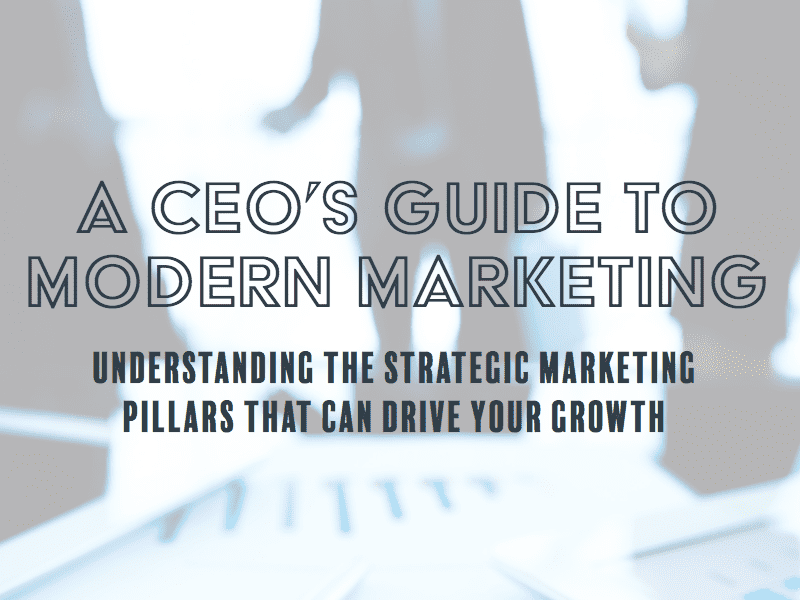Your B2B Buyer’s Journey Keeps Changing: Here’s What You Can Do About It
There’s plenty already written about how the digital transformation has greatly altered the way B2B companies market products and services, especially for professional services firms that long relied on traditional marketing vehicles. But the digital wave isn’t the only force that’s changing your buyer’s journey. By understanding the factors driving a fundamental change in B2B buyer behavior, you can adjust how you go to market and achieve a higher ROI.
AI is Powering Up Buyer Research
Anything we say today about generative AI might be outdated a few months from now. With that caveat, let’s look at how AI is impacting the way B2B buyers learn about products and services that can solve their problems.
The digital transformation, accelerated by the pandemic, forever altered how buyers investigate solutions to their challenges. Now a buyer is likely to do extensive research on their own, online, before they’re ready to have a sales conversation. Yet, as we know just from skimming the news, the Internet is filled with information that’s not necessarily credible or validated. And with generative AI now transforming online searches, that poses a big dilemma.
For example, as we marketers peel back the onion and learn how the latest AI tools work, it’s become clear there are major differences that can impact AI-powered search results. Some AI-enabled search tools are research based, lending more credibility to the results. Others are highly influenced by the data you feed in or what the model has been trained to believe should come next in a particular sequence. Some are even limited by how long ago their models were trained, calling into question how current (and therefore, accurate) their results are.
AI is also changing how B2B companies engage one-on-one with buyers. Many are using AI-enabled chatbots on their websites to answer frequently asked questions. While these tools can cut down on the administrative tasks of the sales process, they can’t handle every nuanced question a B2B buyer has.
On the flip side, the fact that the Internet has become the Wild West of Information is leading some B2B buyers to engage with sales sooner, if only to validate what they’ve seen and read. While it’s critical that B2B companies reshape the revenue funnel to reflect that buyers are spending much more time engaged with marketing vs sales, you also need to stay nimble, adapt to each buyer’s preferences, and make sure the sales portion of the journey is just as well-thought-out and effective in moving buyers to a purchase decision.
Legislation Could Alter the Digital Journey
As fast as the technology landscape is changing, so is the legal landscape. As we speak, Congressional committees are debating the American Privacy Rights Act (APRA) of 2024, a far-reaching piece of legislation with the potential to impact digital marketing significantly. The act intends to protect individuals’ rights to their personal information by giving them greater control over how that data is sold or shared, even allowing them to correct or delete it. It’s been described as akin to Europe’s General Data Protection Regulation (GDPR), and if passed it could preempt the current, complex web of state data privacy laws.
Today, every action your B2B buyer takes online adds to their digital footprint. And that footprint yields invaluable intelligence about their needs and preferences, based on factors like the content they consume and the keywords they use to reach that content, for example. Successful marketers use those insights to develop and execute highly targeted and often personalized marketing campaigns, leveraging the specific channels a buyer uses along the way to a purchase decision. That’s been one major benefit of the digital transformation: the ability to use digital tools to gather, track, analyze, and draw insights from a wealth of data gleaned from buyers’ online behavior, with the goal of moving them to make a purchase.
If the APRA goes into effect, gathering the intelligence you need to target and personalize marketing experiences at scale—all while respecting the buyer’s privacy—will become trickier. We’ve already seen that play our in states with strict data privacy laws. As your B2B buyer’s journey evolves, it’s going to be tougher to keep track of it, adapt to it, and make your company visible and relevant throughout it.
What’s the Takeaway for B2B Companies?
As your B2B buyer’s journey keeps changing—and your ability to track and analyze it keeps evolving—you need to work smarter to optimize your marketing efforts and maximize your ROI. Here are a few good starting points.
- Aim for consistency and cohesiveness. Given that your B2B buyer’s experience will include multiple touchpoints across various channels—sometimes over a period of years—it’s critical to present consistent messaging through an integrated approach that spans marketing and sales. Regardless of the route they take, what your buyers see online and what they experience when they speak with your team needs to match up 100%. The experience should be cohesive and seamless, from awareness through contract signing.
- Stay authentic. Some companies are using AI to fast-track their content development for efficiency’s sake. But the highest performing content offers a unique point-of-view through an original voice. You won’t move buyers to act by simply asking ChatGPT for fodder and editing it into a generic blog. Marketri recently rolled out a video campaign for a professional services client, showcasing the expertise of their highly qualified engineers in a way that was much more powerful than a vanilla blog. Jointly-authored articles and collaborative campaigns with partners can also boost credibility and authenticity.
- Accept that it’s gray. Just because your B2B buyer CAN do all their research online doesn’t mean they WILL. Some are skeptical about online content, even if it comes from a reputable vendor. They might look to a trusted peer for a referral or ask to talk with a sales rep earlier in their journey than you’d expect in this digital age. Be prepared to meet them where they are.
- Choose a marketing partner that’s staying ahead of the curve. Digital marketing is nuanced, complex, and changing at breakneck speed. Your strategic marketing partner should be keeping up with emerging technologies like generative AI, voice-enabled search, generative search platforms like Google’s Search Generative Experience, and augmented reality. And they should be staying current on how search engine algorithms are evolving, so they can keep your business visible and ranking well.
If you’d like to learn more about how B2B buying is evolving and how the right strategic marketing approach can improve your ROI, schedule a call with our President Deb Andrews.





